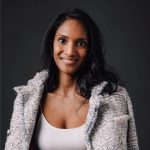Gaining a Master’s degree in English literature enables you to study different literary works, genres, eras, as well as movements in greater detail. Employers place a high value on your ability to write, communicate, as well as think critically. Nevertheless, it can be difficult to select the best MA English literature program given the abundance of options. The following crucial advice will assist you in making an informed choice:
Research Program Details
Compare the salient features of different MA English Literature programs, including faculty, learning styles, specializations, curriculum, as well as placement assistance, to conduct in-depth comprehensive exhaustive research. Examine thoroughly analyze brochures and university websites for comprehensive program details. Curriculum design, course offerings, faculty qualifications, research specializations and focus areas, program length and workload, degree recognition, university reputation, teaching quality, as well as teaching strategies are all important things to investigate. Making a shortlist of the programs that best fit your preferences as well as goals for earning an advanced degree in English literature will require you to compare several offerings across parameters such as curriculum, specializations, learning style, faculty, career support opportunities, and placement rates.
Consider Program Delivery Mode
Programs for MA English literature are available online, via distance learning, and in-person. Make a decision based on your lifestyle, finances, as well as location. Immersion learning is provided by campus-based programs, but relocation is necessary which can be financially draining and socially isolating for some. While learning while working is flexible with distance learning as well as online options, self-discipline is still required to avoid falling behind in readings, assignments, and maintaining consistent progress in the program. Some may find a hybrid model that combines online asynchronous learning with occasional campus visits useful for networking and collaborative opportunities. Engage in conversation with current students to learn about the infrastructure support for various modes as well as the teaching methodology and how well each mode caters to different learning styles and situations.
Check Eligibility Criteria
Basic admission requirements for programs include prior qualification, grade point average, as well as other factors. Verify that your educational background meets the requirements for any potential programs. Some might also take work experience into account. There are extra requirements for international students regarding language proficiency exams. If you have any questions, get in touch with the program coordinators to prevent last-minute rejections.
Focus on Specializations
Through elective papers, most programs enable specialization in particular literary genres, eras, or themes, such as feminist literature, Shakespearean works, postcolonial writings, etc. To make the most of the program, look into the areas of expertise of the faculty to find specializations that line up with your interests. Developing in-depth subject knowledge that is valued by research institutions as well as employers is facilitated by specialization.
Evaluate Costs and Funding Options
Examine the total out-of-pocket costs, living expenses, as well as tuition fees for various program lengths as well as delivery methods. Find out if there are any scholarships, tuition fee waivers, teaching or research assistantships, or need-based financial aid available based on academic achievement or family income. Examine student loan options for funding after determining the terms of repayment. When selecting programs, compare the long-term career prospects with the costs.
Consider Placements and Alumni Network
Engage in LinkedIn interactions with program coordinators, current students, as well as alumni to gain insight into placement patterns, typical compensation packages, as well as businesses that hire recent graduates. Programs with higher placement rates, internship opportunities, an alumni network, and specialized career support cells ought to be given priority. Career prospects are also impacted by the reputation of the awarding university.
Assess Program Fit Based on Your Goals
Consider your long-term career objectives, such as getting a PhD, changing careers, meeting job requirements, etc., and make a shortlist of programs that will help you get there. For instance, PhD aspirants would benefit from research-focused programs, but career-switchers would benefit from coursework-based ones. Goals are also impacted by proximity to prospective employers as well as advice from esteemed faculty. Customizing the selection procedure is essential.
Reach Out to Admissions Team
Contact admissions coordinators after you’ve narrowed your selection to two or three programs to ask questions and to discuss the application process as well as deadlines. Ask to have virtual meetings with enrolled students to gain firsthand knowledge. Selection is also influenced by elements like the program’s atmosphere, student reviews, as well as the staff’s responsiveness. After doing extensive research, select the program that offers the best overall fit.
Conclusion
With the help of these pointers, you can choose the online master’s degree for English literature option that will help you reach your career as well as academic goals by methodically analyzing programs based on important criteria. Making an informed decision can be aided by concentrating on specializations, program fitment, costs, as well as career relevance.












